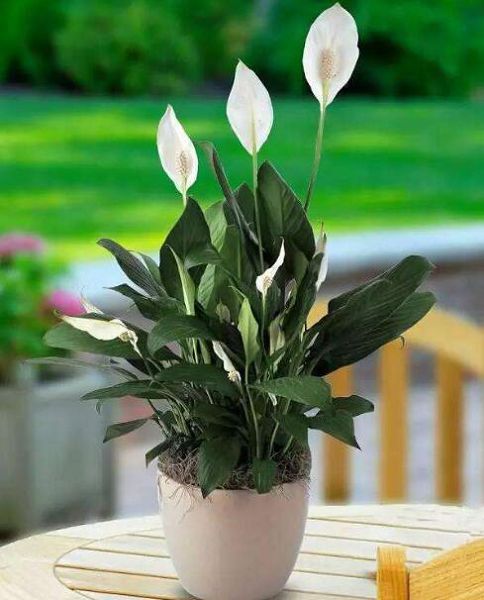How to prevent pests in Flowers
Apart from solving the problem when insects occur, is there any way to prevent them in advance? 7 in fact, the principle is to give plants a healthy environment and proper control of water and fertilizer in order to increase their resistance to insect pests.
Check the plants before buying them.
The first step in prevention is not to bring back pests. In particular, pests will hide in invisible places such as the back of leaves, roots, flowers, and even the bottom of the pot. remember to check carefully before buying plants.
Keep ventilated
If the environment is well ventilated, it is difficult for tiny pests to breed. Therefore, the branches and leaves that are too dense should be trimmed so that the leaves are well ventilated.
If there are potted plants at home, leave some distance between the bowls, do not touch the branches and leaves of each plant, and maintain good ventilation, so that pests naturally have nothing to hide.
Spraying insect repellent regularly
Melia azedarach oil, citronella oil or home-made garlic pepper water can help drive away insects, and regular spraying can reduce insect production.
Unfermented organic fertilizer
Insects also like to eat nutritious things, so if you mistakenly apply unfermented organic fertilizer, or kitchen leftovers such as fallen leaves and peels, pests may be attracted. When applying organic fertilizer, it is best to cover it with soil to prevent the smell from attracting insects.
Cultivate plants with few pests
When food is in front of you, there will be likes and dislikes, and so will plants for insects. Some plants are not eaten by insects because they produce milk, or contain alkaloids or aromatic ingredients in their bodies, or even are too hard and prickly. Of course, these plants are not necessarily pest-free, but relatively few compared with other plants.
Succulent plants: species with spiny hard skins or containing milk that can cause pests
There's no way to start.
Thick-leaf orchid: the leaves of orchids such as Dendrobium and Calderia are thick and hard and rarely invaded by pests.
Vanilla plants: such as rosemary, aromatic marigold, etc., the smell of insects may not like.
Densely covered fluffy plants: some plants are densely covered with hairy leaves such as left-handed incense, which can make it difficult for pests to climb.
Related
- What if the leaves of potted flowers turn yellow?
- Florescence Control of several Flowers
- Anti-freezing technology and post-freezing nursing technology of flowers
- What is the classification of flowers? What are the common methods of flower classification?
- Prevention and control of alkali and acid damage of flowers in courtyard
- Technology of Anti-freezing and restoring growth of Flower seedlings in greenhouse and greenhouse
- How does flower fertilization not hurt the root? Fertilization technology of flowers
- Key points of disinfection in flower greenhouse
- Several pesticides that are banned or used cautiously in flowers
- How to fertilize the flowers that watch the leaves?



